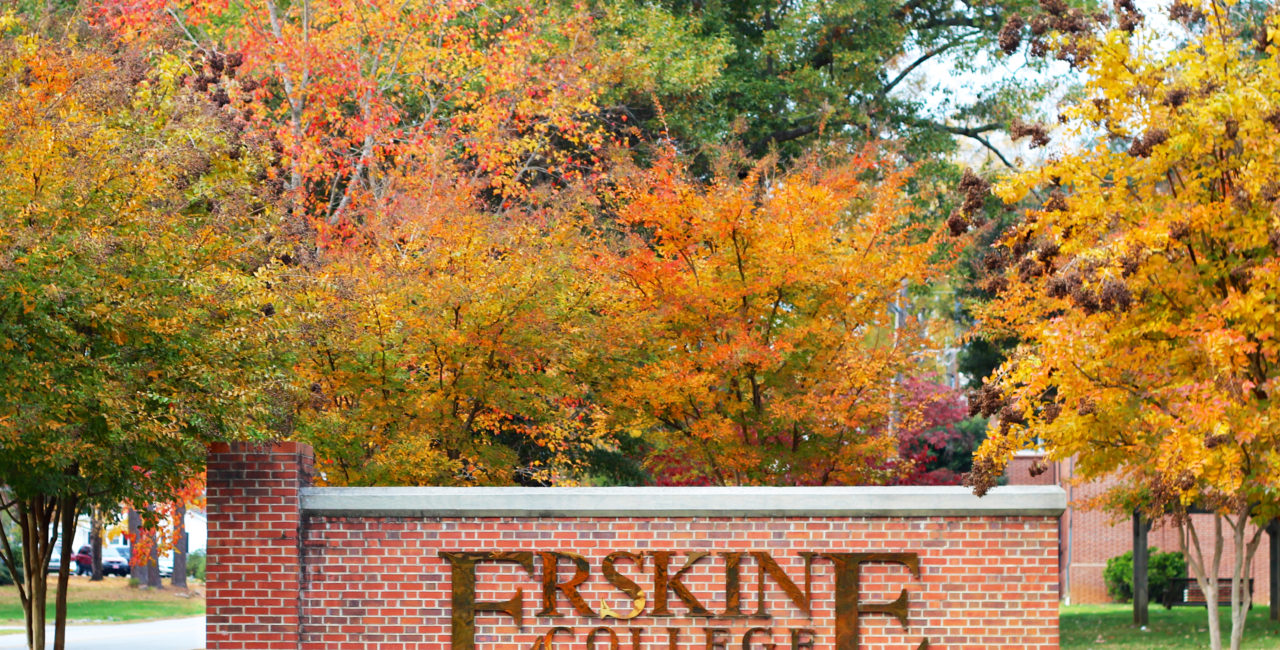
Idea of covenant fundamental to U.S. Constitution, speaker says
 “The U.S. Constitution did not develop in a vacuum,” Cameron Runyan told Erskine College students Sept. 27 in Lesesne Auditorium.
“The U.S. Constitution did not develop in a vacuum,” Cameron Runyan told Erskine College students Sept. 27 in Lesesne Auditorium.
From the fervent faith of Christopher Columbus on display in the explorer’s journal to the profound covenantal influence of the Mayflower Compact, Runyan traced documents and developments that helped shape the U.S. Constitution.
Runyan stressed that there is “something special about the founding of this country,” and explained that the idea of a covenant community began long ago.
Looking back to God’s covenant with Israel at Mount Sinai, Runyan said the people of Israel participated freely, and that the covenant at Sinai was “a moral pledge.” Covenant participants “voluntarily assume reciprocal responsibility for other members of the community.”
Asserting that “the foundations of our covenantal society are crumbling,” and decrying the increasingly “shrill and hyperbolic” nature of discourse in contemporary life, Runyan said, “Just as Israel squandered its many blessings, so America is squandering hers.”
He pointed to God as the only hope. “Your generation may well be the last opportunity we have for healing in this nation,” Runyan said. “You cannot heal the nation. But you can be obedient to God, and He will heal the nation. If you will be who he calls you to be, he will hear your prayer.”
Cameron Runyan, who spoke in honor of Constitution Day, is Chief Executive Officer for the Charter Institute at Erskine. He formerly served on the Columbia City Council, where he was chairman of the Budget Committee; secured authorization of an urban redevelopment project; led in developing and implementing an economic recruitment strategy; and, in a collaborative effort with nearly 100 churches and homeless service providers, helped to move members of the city’s homeless population into paths out of poverty.
All institutions of higher education receiving federal funds must provide educational programming celebrating the history, meaning, and importance of the United States Constitution on or near Sept. 17, the day the Constitution was signed in Philadelphia in 1787.
